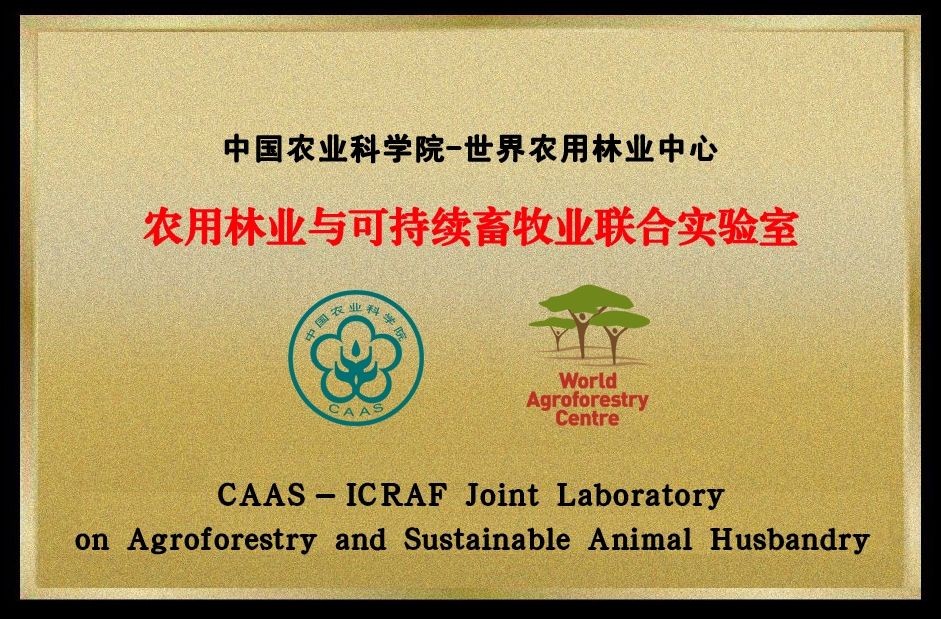CAAS-ICRAF Joint Laboratory on Agroforestry and Sustainable Animal Husbandry
Source: Author: Date:2014-12-05
On the 27th March, 2014, professor Wu Kunming, the head of Chinese Academy of Agricultural Sciences (CAAS) and Dr. Tony Simons, the director of The International Centre for Research in Agroforestry (ICRAF), signed an agreement on the formation of the CAAS-ICRAF Joint Laboratory on Agroforestry and Sustainable Animal Husbandry, and the joint laboratory was located at the Institute of Animal Science, Chinese Academy of Agricultural Sciences since then.
The lab was conformed to strength and deepen the collaboration between ICRAF and CAAS, to set up the “new window” to lead Sustainable Agroforestry and Animal Husbandry through science and technology innovation and transfer under preferred theme and to act as a Hub for promoting the integration and utilization of agroforestry resources and sustainable development of animal husbandry, improve ecosystem, and play a role in enhancing the international status of both parties in related fields.
The lad will focus in particular on the resource evaluation and cyclic utilization of woody forage and oil-bearing crops, ecological diversity of environmental microbes (especially fungal) and nutrient recycling, low-carbon emission and sustainable development of animal husbandry, health feeding and high-quality product development and agroforestry restoration methods of deteriorated grasslands and lay the foundation for healthy and sustainable development of China's animal husbandry.
The lab was conformed to strength and deepen the collaboration between ICRAF and CAAS, to set up the “new window” to lead Sustainable Agroforestry and Animal Husbandry through science and technology innovation and transfer under preferred theme and to act as a Hub for promoting the integration and utilization of agroforestry resources and sustainable development of animal husbandry, improve ecosystem, and play a role in enhancing the international status of both parties in related fields.
The lad will focus in particular on the resource evaluation and cyclic utilization of woody forage and oil-bearing crops, ecological diversity of environmental microbes (especially fungal) and nutrient recycling, low-carbon emission and sustainable development of animal husbandry, health feeding and high-quality product development and agroforestry restoration methods of deteriorated grasslands and lay the foundation for healthy and sustainable development of China's animal husbandry.
